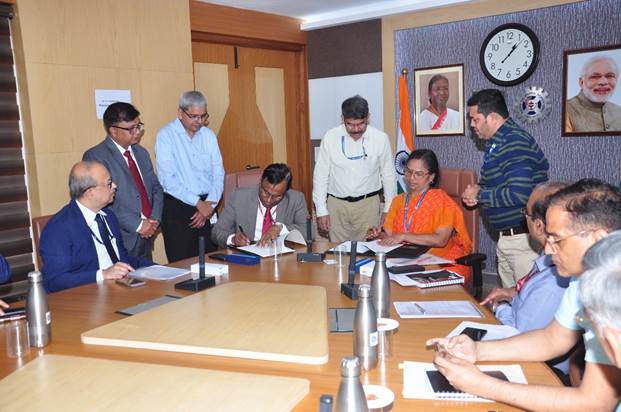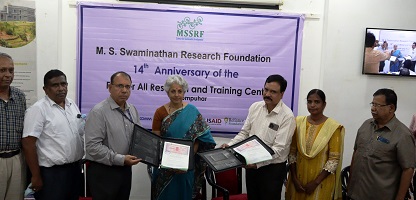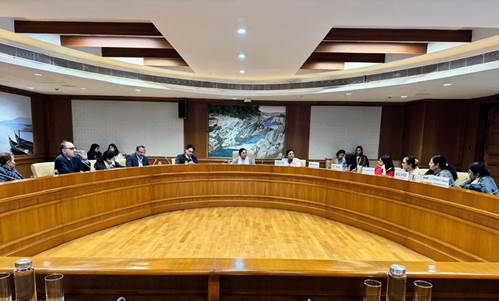 Dr. N. Kalaiselvi highlighted that while CSIR laboratories develop various technologies, partnering with grassroots organizations like MSSRF will enhance the reach and impact of these innovations, particularly in the societal sector.
Dr. N. Kalaiselvi highlighted that while CSIR laboratories develop various technologies, partnering with grassroots organizations like MSSRF will enhance the reach and impact of these innovations, particularly in the societal sector.
Dr. Soumya Swaminathan emphasized that MSSRF, in its mission to support tribal and vulnerable communities, seeks affordable and impactful technologies from CSIR labs. This partnership will help bridge the gap caused by geographical, linguistic, and resource barriers that often prevent direct access to CSIR’s technologies by these communities.
The MoU aims to create a framework for transferring proven, affordable technologies with societal relevance from CSIR laboratories to Self-Help Groups (SHGs), NGOs, Farmer Producer Organizations (FPOs), and other voluntary organizations selected by MSSRF. This collaboration will focus on livelihood generation and the empowerment of women and tribal populations.
CSIR’s research spans a wide range of areas, including:
- Healthcare
- Agriculture, Nutrition, and Biotechnology
- Energy and Energy Devices
- Chemicals, Leather, and Petrochemicals
- Mining, Minerals, Metals, and Materials
- Civil Infrastructure and Engineering
- Aerospace, Electronics, Instrumentation, and Strategic Sectors
- Ecology, Environment, Earth Sciences, and Water
MSSRF, recognized as a Scientific and Industrial Research Organization by the Government of India, focuses on addressing the practical challenges faced by rural and tribal communities. With a pro-poor, pro-women, and pro-nature approach, the Foundation applies science and technology to improve agriculture, food, and nutrition through its sub-centers and field stations across the country.


 Dr. N. Kalaiselvi highlighted that while CSIR laboratories develop various technologies, partnering with grassroots organizations like MSSRF will enhance the reach and impact of these innovations, particularly in the societal sector.
Dr. N. Kalaiselvi highlighted that while CSIR laboratories develop various technologies, partnering with grassroots organizations like MSSRF will enhance the reach and impact of these innovations, particularly in the societal sector.

